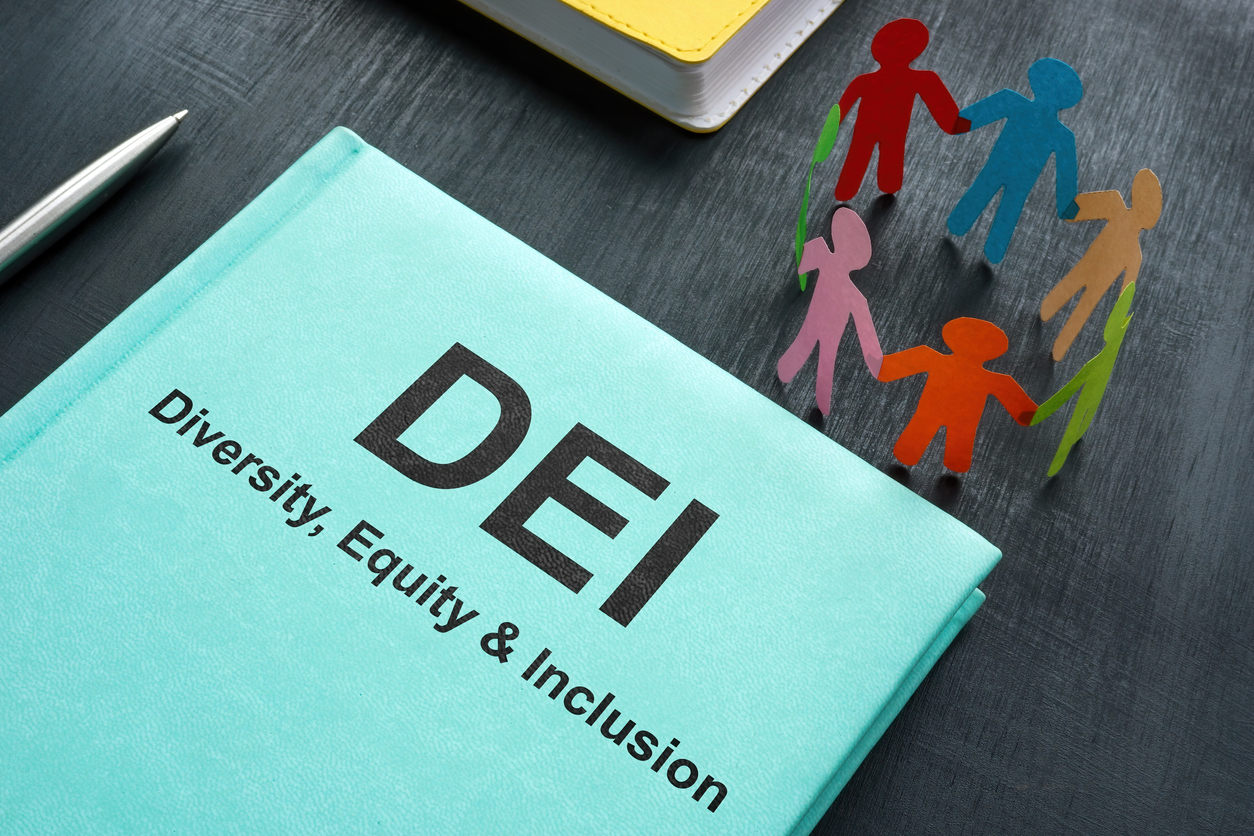Diversity Dilemma: Corporate America's DEI Tug-of-War Revealed
Companies
2025-04-02 08:30:00Content

Despite widespread corporate pullbacks on Diversity, Equity, and Inclusion (DEI) initiatives, the landscape is far from uniform. While some companies are scaling back their DEI efforts in response to political pressures and legal challenges, others remain committed to fostering inclusive workplace environments.
The current climate has seen notable shifts, with tech giants and Fortune 500 companies reassessing their diversity programs. High-profile companies like Google, Meta, and Amazon have reduced DEI staffing and budgets, reflecting a broader trend of organizational retrenchment. These changes come in the wake of Supreme Court decisions, conservative legal challenges, and a shifting political narrative around workplace diversity.
However, not all organizations are following this trend. Progressive companies and forward-thinking leadership teams continue to view DEI as a critical strategic imperative. They recognize that diverse workforces drive innovation, enhance employee engagement, and better reflect the complex global marketplace.
Experts argue that while the current moment may feel like a setback, it represents an opportunity for more meaningful and sustainable approach to inclusion. The focus is shifting from performative initiatives to substantive, data-driven strategies that create genuine organizational change.
As the corporate world navigates this complex terrain, one thing remains clear: the conversation around diversity and inclusion is far from over. Companies that maintain their commitment to DEI are likely to emerge as more resilient, adaptable, and competitive in the long term.
Corporate Diversity Dynamics: Navigating the Shifting Landscape of Inclusion Strategies
In the rapidly evolving world of corporate culture, organizations are experiencing a profound transformation in their approach to diversity, equity, and inclusion (DEI) initiatives. The current business landscape reveals a complex narrative of adaptation, resistance, and strategic recalibration that challenges traditional paradigms of workplace representation and organizational development.Reimagining Workplace Diversity in an Era of Unprecedented Change
The Emerging Complexity of Corporate Inclusion Strategies
Corporate America stands at a critical crossroads, where traditional diversity frameworks are being fundamentally reassessed and reconstructed. Organizations are no longer viewing DEI as a simple checkbox exercise but as a nuanced, strategic imperative that demands sophisticated understanding and implementation. The contemporary approach requires a holistic examination of systemic barriers, unconscious biases, and organizational culture that extends far beyond surface-level representation. Sophisticated leaders recognize that genuine inclusion transcends numerical quotas, demanding a profound cultural transformation that integrates diverse perspectives into the core organizational DNA. This metamorphosis involves creating environments where individuals from varied backgrounds not only participate but genuinely thrive, contribute meaningfully, and feel authentically valued.Technological Disruption and Diversity Transformation
The intersection of technological innovation and diversity strategies is generating unprecedented opportunities for organizational reimagination. Advanced data analytics, artificial intelligence, and machine learning are enabling more nuanced approaches to understanding workforce dynamics, identifying potential bias, and creating more inclusive recruitment and development processes. Companies are leveraging sophisticated algorithmic tools to minimize human bias in hiring, promotion, and talent management. These technological interventions provide objective insights that challenge traditional decision-making frameworks, promoting more equitable workplace ecosystems that recognize individual potential beyond demographic categorizations.Economic Implications of Inclusive Corporate Cultures
Research consistently demonstrates that organizations embracing comprehensive diversity strategies outperform their more homogeneous counterparts. Diverse teams generate more innovative solutions, demonstrate enhanced problem-solving capabilities, and exhibit greater adaptability in complex business environments. Financial metrics increasingly validate the economic rationale for robust DEI initiatives. Companies with robust inclusion strategies consistently report higher employee engagement, reduced turnover rates, and improved overall organizational performance. This economic imperative transforms diversity from a moral consideration to a strategic competitive advantage.Legal and Regulatory Landscape Reshaping Inclusion Practices
The regulatory environment surrounding workplace diversity continues to evolve, creating new challenges and opportunities for organizational compliance and strategic development. Emerging legislative frameworks are compelling organizations to adopt more transparent, measurable approaches to diversity and inclusion. Legal mandates are pushing beyond traditional anti-discrimination protocols, demanding comprehensive strategies that address systemic inequities and promote genuine organizational transformation. This regulatory pressure serves as a catalyst for more profound cultural change, encouraging proactive approaches to workplace equity.Global Perspectives on Organizational Inclusion
The global business ecosystem is increasingly recognizing diversity as a critical component of organizational resilience and innovation. Multinational corporations are developing nuanced, culturally sensitive approaches that respect regional variations while maintaining core inclusive principles. This global perspective challenges monolithic diversity models, encouraging more contextually responsive strategies that acknowledge the complex intersectionality of human experience. Organizations are moving beyond standardized frameworks, developing more adaptive, responsive inclusion methodologies that recognize unique cultural dynamics.Future-Oriented Diversity Strategies
Forward-thinking organizations are developing anticipatory diversity strategies that proactively address emerging workforce trends. These approaches integrate predictive analytics, continuous learning frameworks, and adaptive organizational design to create more resilient, inclusive workplace ecosystems. The future of corporate diversity lies in creating dynamic, responsive environments that continuously evolve, challenge existing paradigms, and generate innovative approaches to human potential and organizational development.RELATED NEWS
Companies

Cross-Border Caution: Why Canadian Businesses Are Rethinking Their U.S. Expansion Dreams
2025-03-17 10:00:00
Companies

Trade War Tactics: Inside Corporate America's Battle Against Trump's Tariff Tsunami
2025-03-07 12:40:00
Companies

Breaking: Global Corporations Wrestle with Diversity's Complex Global Challenge
2025-03-21 15:31:51





